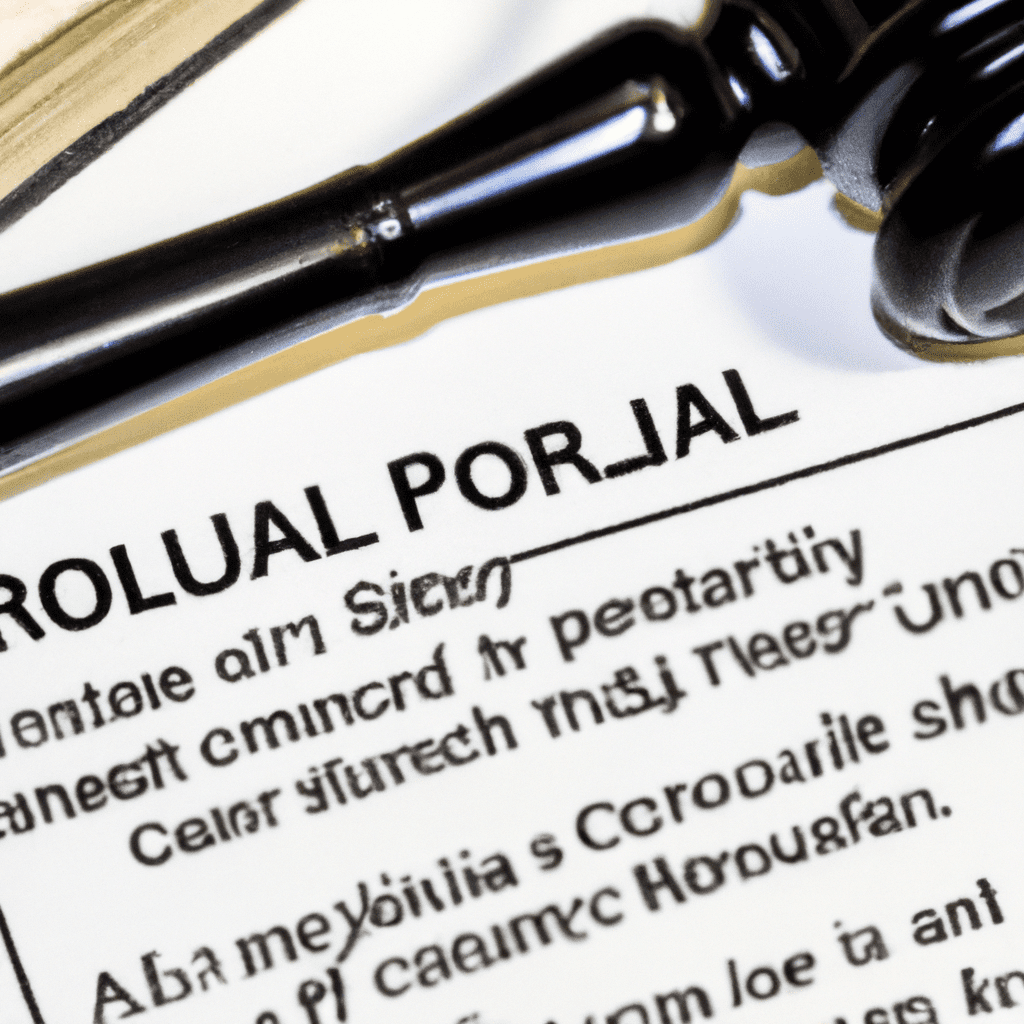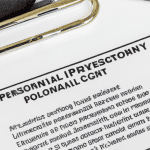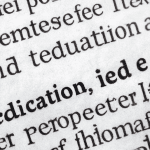Your Personal Injury Claim
When a person suffers a severe injury, whether due to a car accident or other event, their primary thought is likely to be how they can be compensated for medical bills, missed wages, and other damages. An important legal principle, known as the collateral source rule, is vital to determining what compensation a
n injured person is entitled to receive. This article will explore what the collateral source rule is, how it affects personal injury claims, and what can be done to take full advantage of its benefits. [[1](https://www.mosmedicalrecordreview.com/blog/how-the-collateral-source-rule-applies-in-personal-injury-cases/)] [[2]
(https://scholar.smu.edu/cgi/viewcontent.cgi?article=1829&context=jalc)] [[3](https://flemingattorneys.com/blog/collateral-source/)] Specifically, it will review the potential impact of tort reform, the benefits of having private insurance, and other topics. By understanding the collateral source rule, individuals can ensure that they will receive the compensation to which they are legally entitled.

Table of Contents
- Answer 1:
- 1. What is the Collateral Source Rule?
- 2. How Does the Collateral Source Rule Affect Your Personal Injury Claim?
- 3. Pros and Cons of the Collateral Source Rule
- 4. How to Navigate the Collateral Source Rule[[1](https://www.harmonie.org/file/Litigation%20Best%20Practices/Collateral%20Source%20Rule%202016.pdf), [2](https://law.marquette.edu/assets/news-and-events/ppt/201303-civil-lit-cle-2.pptx), [3](http://mcfarg.com/wp-content/uploads/2022/12/COLLATERAL-SOURCE-updated-Feb-2022.pdf)]
- Q&A
Answer 1:
Key components of good content
- Clear, concise language
- Simple sentence structure
- Good use of strongest keywords
- Audience-appropriate tone
Good content is essential to draw the attention of the audience and engage them further. It should be written with a balance of clarity and brevity. Content that is too wordy will fail to hold readers’ attention and they may quickly become bored or
distracted. Similarly, a lack of clarity can cause confusion and make the content difficult to follow. Writers should strive for straightforward, engaging language that conveys the necessary information quickly and effectively.
In addition to using clear language, it’s important to pay attention to the structure of individual sentences and paragraphs, for the same reasons. Short sentences are key for keeping the reader’s attention, as long-winded constructions can
quickly become confusing or just plain boring. It is also necessary to pay attention to the use of keywords – strong words that capture important points of the text. Writing with strong keywords that are appropriate to the tone and content will compel readers to take action.
Finally, a successful writer needs to adopt an audience-appropriate tone. It’s important to maintain a consistent tone that reflects the subject matter – be that formal, conversational, or somewhere in between – and that is respectful of the
audience that the content targets. [[1](https://www.upwork.com/hire/content-writers/interview-questions/), [2](https://www.simplilearn.com/content-writer-interview-questions-article), [3](https://www.javatpoint.com/content-writer-interview-questions)]

1. What is the Collateral Source Rule?
The Collateral Source Rule is a legal concept that has been developed over decades in the American tort system, which is meant to ensure that an injured party does not receive a double-payment for damages from more than one
source. It’s derived from the ‘unjust enrichment’ principle, which states that the defendants should not be enriched by double payments. This means that an injured person cannot receive benefits from both a collateral source (like an insurance company) as well as from the defendant.
Receiving payments from a collateral source can come from many sources, like an insurance company, government program, or a business relationship like a union. Any benefits received from these sources are deemed ‘redundant’ and
cannot be recovered from the defendant or any other liable party. In the event that a plaintiff receives these benefits, the defendant is not obligated to provide a double payment, as this would constitute unjust enrichment, and they can only be responsible for the payment of the remaining damages. [[1]
(https://www.uslaw.org/pdf-resources/collateral-source-constant-confusion/), [2](http://blogs.gonzaga.edu/gulawreview/files/2011/12/gonlr7.26.pdf), [3](https://www.pretzel-stouffer.com/wp-content/uploads/2021/01/The-Collateral-Source-Rule-How-to-Avoid-a-Windfall-for-Plaintiffs-PLDF.pdf)]
In the case of health care, the Collateral Source Rule can be complicated. A plaintiff who has obtained medical coverage or other benefits from a source such as insurance, government health care, or even a family member may still receive a payment from the liable party as compensation for medical expenses and other
damages. There are instances where the amount offered by the defendant may be reduced if it is greater than the cost of the medical services rendered, and the court will consider that while settling the dispute. [[2](http://blogs.gonzaga.edu/gulawreview/files/2011/12/gonlr7.26.pdf)]
To conclude, the Collateral Source Rule exists to ensure that no party is unjustly enriched by the legal system. Various types of collateral sources can provide benefits to an injured person in a legal case, and the court will factor those payments into the calculation of damages owed to the plaintiff.
2. How Does the Collateral Source Rule Affect Your Personal Injury Claim?
The Collateral Source Rule is a legal tool used to protect personal injury claimants from being short-changed by insurance companies. In a nutshell, the Rule states that an injured person cannot be compensated twice for the same
injury. In other words, insurance companies are prohibited from reducing a claimant’s recovery amount on the basis that the claimant has already received compensation from another source.
This Rule affects personal injury claims by preventing insurers from offering claimants reduced settlement amounts due to prior compensation received, either through public benefits or employers providing additional benefits. Depending on
the jurisdiction, this Rule may even apply to the injured person’s own pocket if the claimant receives reimbursement from another source (sometimes referred to as a “collateral source”), such as an attorney’s fund or sick pay from an employer.
The Collateral Source Rule applies to many different types of personal injury cases but its power varies depending on the jurisdiction. A few benefits associated with invoking the Rule include:
- Preventing a reduction of your settlement
- Protecting allies, such as your employer or attorney’s fund, from having to repay the insurer
- Ensuring the liability is offset by the liable party and not a third party
- Providing settlement funds for medical costs, lost wages, and other expenses
It is important to understand the Collateral Source Rule and how it impacts your personal injury claim. Your lawyer can help you understand how the Rule applies in your specific jurisdiction and provide you with any additional information you might need. [[1](https://www.allianz.com.au/news-and-articles/workers-
compensation-articles/innovation-and-trends-in-the-personal-injury-space.html), [2](https://lawrank.com/25-content-marketing-ideas-for-personal-injury-lawyers/), [3](https://www.rand.org/pubs/research_briefs/RB9021.html)]
3. Pros and Cons of the Collateral Source Rule
Pros of Collateral Source Rule
- The collateral source rule prevents defendants from using a plaintiff’s separate source of compensation, such as insurance claims, as full restitution, which means the defendant has to pay full damages and a plaintiff may receive full compensation for their losses. [[2](https://www.investopedia.com/terms/c/collateral-source-rule.asp)]
- The collateral source rule can also benefit defendants in cases with comparative negligence. According to the law, a plaintiff’s compensation will not be reduced if their negligence contributed to their injury. [[2](https://www.investopedia.com/terms/c/collateral-source-rule.asp)]
Cons of Collateral Source Rule
- The collateral source rule has resulted in insurance companies paying double for medical costs, as they will reimburse the patient to pay for that same cost. [[2](https://www.investopedia.com/terms/c/collateral-source-rule.asp)]
- The collateral source rule could also potentially limit the rights of the injured party to seek damages, as insurers may become reluctant to provide claims in order to avoid paying additional sums. [[2](https://www.investopedia.com/terms/c/collateral-source-rule.asp)]
4. How to Navigate the Collateral Source Rule[[1]Your Personal Injury Claim
The Collateral Source Rule: An Overview
The collateral source rule, used globally, is a legal concept which prevents monetary damages from being reduced by the amount that was already received
from another source, such as insurance. This legal idea is important to be aware of, as incorrect or misguided interpretations can greatly change the outcome of a litigation.
Navigating and understanding the collateral source rule can be overwhelming. This section provides the keys to understanding the rule properly:
- Know when the rule is applicable. The collateral source rule is not always applicable, as a plaintiff’s recovery may be diminished if a third party has contributed to that recovery by paying for medical expenses or lost wages. Only if the plaintiff takes a money award as a form of damages then the collateral source rule will apply.
- Understand the limitations of the rule. In cases where a plaintiff gets money in the form of workers’ compensation, unemployment benefits, and cash insurance proceeds, the plaintiff will not be barred from using their funds as evidence of the money earned, however, the total recovery will be reduced due to the collateral source.
- For plaintiffs that offer evidence of third-party awards not for lost wages, courts are still allowed to use the funds as evidence of the plaintiff’s actual damages.
Understanding the complexities of the collateral source rule can be confusing, especially when taking the rest of the law into consideration. However, there are certain keys to remember at all times, that will help understand the details of this legal concept better.
Q&A
Q: What is the Collateral Source Rule? Your Personal Injury Claim
A: The Collateral Source Rule is a legal doctrine that dictates that a plaintiff’s damages award in a personal injury lawsuit cannot be reduced due to the receipt of payments from other sources, such as private insurance or governmental benefits [[3](https://www.medicalbillinganalysts.com/what-is-the-collateral-source-rule)].
Q: How does the Collateral Source Rule affect a personal injury claim?
A: The Collateral Source Rule essentially protects an injured plaintiff’s right to full compensation for a personal injury claim, even if the plaintiff received income from other sources [[1](https://quizlet.com/105338863/chapter-19-liability-risk-
flash-cards/)]. This prevents defendants from avoiding liability due to the plaintiff recovering payments from a collateral source [[2](https://law.resource.org/pub/us/case/reporter/F2/957/957.F2d.1161.90-3513.90-3510.html)]. For example, if the plaintiff’s medical bills were partly paid by insurance, the defendant cannot reduce the amount of damages awarded strictly due to the payment of those bills.
The collateral source rule has been an essential part of the personal injury claims process for many years. It can often affect the amount of compensation that a victim may receive from an injury that resulted from someone else’s negligence. Understanding these principles and being aware of their implications can help
anyone affected by such a situation to make easier decisions about how to pursue the best route for justice. [[1](https://www.lawinfo.com/resources/personal-injury/collateral-source-rule.html), [2](https://law.marquette.edu/assets/news-and-events/ppt/201303-civil-lit-cle-2.pptx), [3]
(https://www.mosmedicalrecordreview.com/blog/how-the-collateral-source-rule-applies-in-personal-injury-cases/)] Ultimately, the collateral source rule is an important part of personal injury claims, and is worth understanding properly so that the attending parties can make decisions that are ultimately in their best interests.
personal injury lawyer oklahoma
personal injury lawyer oklahoma



